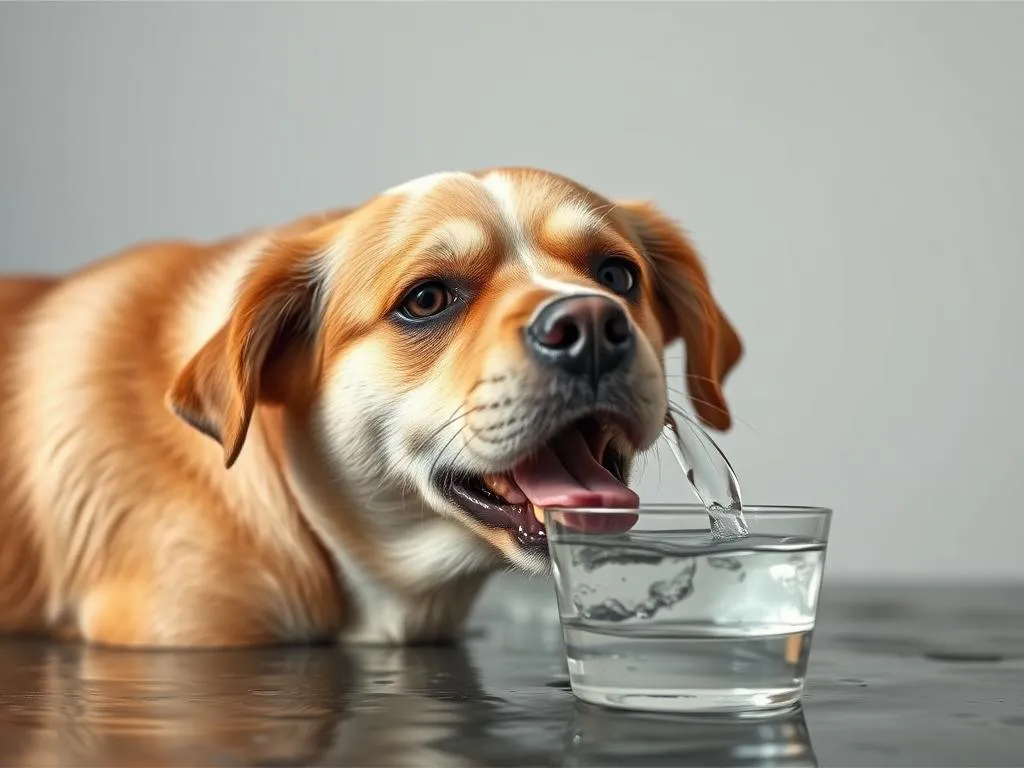
Understanding how to care for our furry friends is essential for every dog owner. One common concern that many pet parents face is vomiting, particularly when it occurs after their dog drinks water. Recognizing the symptoms and understanding the potential causes is crucial for the health and well-being of our pets. This article will delve into why dogs throw up after drinking water, examining various reasons, symptoms to watch for, and when to seek veterinary care.
Understanding Dog Vomiting
Definition of Vomiting
Vomiting in dogs is the forceful expulsion of the contents of the stomach through the mouth. It is important to distinguish between vomiting and regurgitation; while vomiting is an active process, regurgitation is passive and typically involves undigested food. Other forms of gastrointestinal distress, such as diarrhea, can also indicate underlying issues but are distinct from vomiting.
Common Causes of Vomiting in Dogs
Various factors can lead to vomiting in dogs, including dietary indiscretion (eating something they shouldn’t), infections, toxins, and underlying health problems. While this article will focus specifically on the situation where dogs vomit after drinking water, understanding the general causes of vomiting is important for recognizing when your dog may need medical attention.
Why Dogs Throw Up After Drinking Water
Normal Responses vs. Abnormal Responses
After drinking water, most dogs should not exhibit any ill effects. A normal response involves drinking at a steady pace and then going about their day. If your dog is consistently throwing up after drinking water, it may indicate an underlying issue that needs to be addressed.
Potential Causes of Vomiting After Drinking Water
Rapid Drinking
One of the most common reasons dogs throw up after drinking water is rapid drinking. Dogs can gulp water quickly, especially when they are thirsty after playing or being active. This behavior can lead to an upset stomach and vomiting. To mitigate this, consider using specialized bowls designed to slow down their drinking.
Underlying Health Issues
Certain health conditions can lead to vomiting after drinking water. Gastrointestinal disorders, pancreatitis, or even infections may cause your dog to react poorly after consuming water. Be vigilant for signs such as lethargy, abdominal pain, or changes in appetite, which could signal a more serious issue.
Water Quality and Temperature
The quality and temperature of the water can also impact a dog’s digestive system. Water that is too cold or too hot can irritate their stomach lining, leading to vomiting. Ensure that your dog has access to clean, fresh water at a comfortable temperature to help prevent this issue.
Food and Water Interaction
The timing of feeding and drinking can play a significant role in a dog’s gastrointestinal health. If a dog drinks water immediately after eating, it may lead to an upset stomach and vomiting. Additionally, certain food types or allergies can exacerbate this reaction. Monitor your dog’s eating and drinking habits to identify any patterns that may lead to vomiting.
Behavioral Factors
Dogs are sensitive creatures, and their emotional state can affect their physical health. Stress or excitement can lead to vomiting, especially in new or chaotic environments. Changes in routine or the presence of unfamiliar animals can also impact a dog’s eating and drinking habits, resulting in digestive upset.
When to Be Concerned
Signs That Indicate a Serious Problem
While occasional vomiting may not be a cause for concern, persistent vomiting or other alarming symptoms should be monitored closely. Look out for signs such as:
- Persistent vomiting: Vomiting multiple times in a short period.
- Lethargy: A noticeable decrease in energy or enthusiasm.
- Diarrhea: Loose stools accompanying vomiting.
- Loss of appetite: Refusal to eat or drink.
Situations That Require Immediate Veterinary Care
Certain situations warrant immediate veterinary attention. If your dog is vomiting after drinking water and exhibits any of the following, seek help right away:
- Presence of blood in vomit or stool.
- Signs of dehydration, such as dry gums or lack of urine.
- Severe abdominal pain or bloating.
- Vomiting lasting more than 24 hours.
In such cases, it’s crucial to consult your veterinarian to ensure your dog receives the necessary care.
Preventative Measures
Managing Drinking Habits
To help prevent vomiting after drinking, consider implementing strategies to manage your dog’s drinking habits. Utilizing specialized bowls designed to slow down water consumption can be beneficial. Additionally, creating a calm environment during drinking times can help reduce excitement that may lead to gulping.
Regular Veterinary Check-ups
Routine veterinary visits are essential for maintaining your dog’s overall health. During these check-ups, discuss any vomiting incidents with your veterinarian. They can provide guidance tailored to your dog’s specific needs and help identify any underlying health issues.
Diet and Nutrition Considerations
A well-balanced diet is crucial for minimizing gastrointestinal issues in dogs. Ensure that your dog is receiving high-quality food that meets their nutritional requirements. Proper hydration is also vital; always provide access to fresh water to support their overall health.
Home Remedies and Treatments
Dietary Adjustments
If your dog has an upset stomach after drinking water, consider making dietary adjustments. Some homemade diets consisting of bland foods, such as boiled chicken and rice, can help soothe their gastrointestinal tract. However, be cautious and avoid foods that could exacerbate vomiting, such as fatty or spicy foods.
Hydration Strategies
Keeping your dog hydrated is important, but it should be done carefully to avoid inducing vomiting. Small, frequent sips of water can help maintain hydration without overwhelming their stomach. You can also consider using electrolyte solutions formulated for pets, which can help in keeping them hydrated without causing further distress.
Natural Remedies
Some natural remedies may help with nausea in dogs. Ginger, for example, is known for its anti-nausea properties. However, it’s essential to consult your veterinarian before introducing any new treatments, as they can provide personalized recommendations based on your dog’s health status.
Conclusion
Understanding why dogs throw up after drinking water is a crucial aspect of dog health care. By recognizing the symptoms and potential causes, you can take proactive measures to ensure your pet’s well-being. It’s essential to monitor your dog’s behavior and maintain open communication with your veterinarian to achieve the best health outcomes for your furry friend. Caring for a dog involves vigilance, knowledge, and compassion, ensuring that they lead a happy and healthy life.









